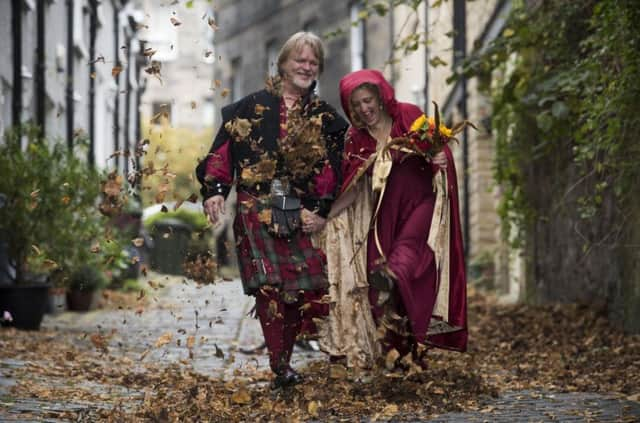Humanist weddings overtake Church of Scotland ceremonies


Civil and humanist ceremonies accounted for well over half of the 28,440 weddings in Scotland last year.
The shift has been put down to the diminishing role of religion in Scottish public life as well as the more “personal” approach couples can enjoy at humanist ceremonies.
Advertisement
Hide AdAdvertisement
Hide AdThere were 3,283 ceremonies staged across the country by the Humanist Society Scotland in 2017 compared with 3,166 couples who get married in the Kirk. It marks an ongoing shift away from religion.
More than 5,300 humanist ceremonies were staged across all humanist organisations in Scotland last year.
Roman Catholic weddings in Scotland sunk to 1,182 last year, a new low for the modern era.
Former Socialist MSP Tommy Sheridan recently revealed that he is in training to become a humanist celebrant.
The Humanist Society Scotland is now the biggest provider of marriage ceremonies of any belief or religious group, while the Caledonian Humanist Association held 325 last year, in its first year of recorded marriages.
Lynsey Kidd, Director of Services at Humanist Society Scotland said: “We know from couples that it is very important to them to have a ceremony which reflects, and is delivered by someone who shares their beliefs and values. Humanist Society Scotland are now the number one provider of marriage ceremonies, more than any religious group or other belief body.
“These numbers also reflect a wider trend of a decline in religious identity within the Scottish population. While it is important to recognise that faith plays an important part in a significant number of people’s lives, Scotland has become a nation where it is now the norm, not the exception, to have a non-religious Humanist approach to life.”
Humanist marriage ceremonies were given legal status in 2005, meaning in the space of 12 years lead ceremonies have grown in popularity from a small community to the largest type of marriage outside civil registrations.
Advertisement
Hide AdAdvertisement
Hide AdLenny Love is a celebrant in Edinburgh with the Caledonian Humanist Association and says he is not surprised to see ceremonies overtake the Kirk.
“It’s been going that way for a number of years,” he said.
“It’s not really been a surprise. We don’t have a problem with religion and I’m certainly not against religion. It’s just that I’m not religious.
“We find that more and more people these days are not so keen on a religious ceremony because it’s actually quite impersonal and humanist wedding ceremony is very personal.
“No two are the same because it’s all about the couple.
“The couple get to tell the story of how they met, how they got together and the reasons why they decided that each one was the person to marry and why they want to spend the rest of their lives together.”
The figures do show that across all Christina organisations, including the Methodists, Episcopalians and Free Church of Scotland, there were about 6,400 weddings held, although numbers are falling across these groups.
Rev Norman Smith, convener of the Mission and Discipleship Council of the Church of Scotland, said: “Along with our sister churches, the majority of religious or belief–based marriages in Scotland today continue to be from the Christian faith.
“Whilst the rise of secularism means that fewer people may choose a religious ceremony, many people still find it meaningful to acknowledge the place of faith in their lives at such an important occasion.
“We would encourage anyone considering marriage to approach their local parish minister when thinking about their very special day.”
Advertisement
Hide AdAdvertisement
Hide AdThe 28,440 weddings in 2017 is Scotland is the second successive fall in recent years, although numbers have remained around the 30,000-mark for the past couple of decades. But numbers have fallen since the sixties and seventies when they were well into the 40,000s.